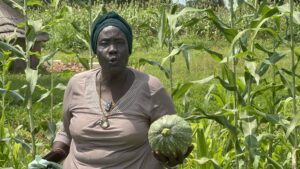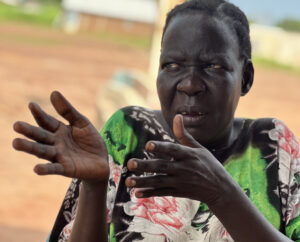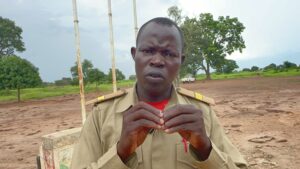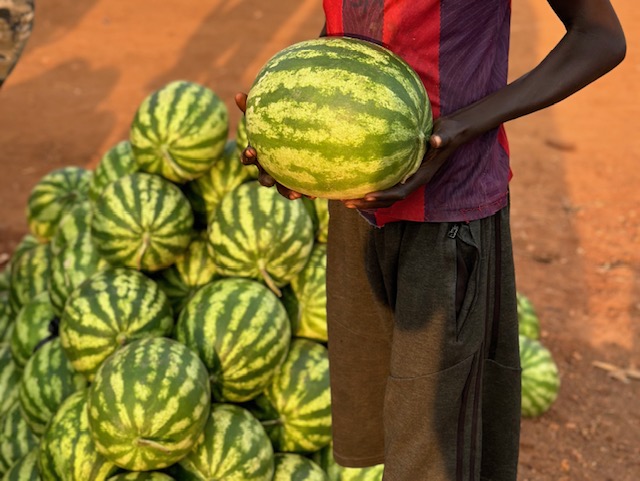Chuol Jany
Local Farmers in Western Bahr el Gazal State has expressed their ambition of cultivating different crops beyond family consumption
They say the market is Wau town is full of products between July to October yearly because the farming become part of their livelihood urging other states to adopted.
A prominent leader of the Episcopal Church in Wau, Canons. Angelina Ayen says she has a farm which enabled her family to meet their needs, and some are sale in the market to buy things lacking at home
Ayen explained that since she established a three feddan garden, her family never depend on the market, while also improving her overall health. “Farming has allowed us to provide for ourselves and has significantly benefited my health. It’s a way of life that sustains us physically and mentally,” she explained.

Ayen planting numerous crops and vegetables include dura/ sorghum, beans, watermelon, pumpkin and maize and groundnut in her garden.
More than just a source of food, Rev. Ayen’s farm serves as an inspiration for hard work and self-reliance within the Wau community. She emphasized that South Sudanese people should make better use of the fertile land available to them, particularly now that peace has returned to the country.
Mama Ayen’s message is resonating with many in Wau, encouraging a shift from dependency to self-sufficiency through farming, as she sets an example of how hard work and determination can lead to a prosperous and healthy life.
She calls the South Sudanese citizens to embrace farming and reduce their reliance on relief aid.
Another farmer at the outskirt of Wau, Achalla Akua from Kuajiena Payam explained the important of farming to increase their income at home. She says government provide little to support them in such a remote village, but agriculture is the way of life.

“We farm every time, it helps us to support the family pay school fees and get uniform for my children. Sometime floods can be a problem that make crops don’t grow but we can’t give up into this work because we don’t have any other way to survive.” She spoke.
A 15-year-old Watermelon seller in Wau town praised the farmer their hard work. Peter Khamis said he wakeup in the morning to collects watermelon at the farmland with low price and sell them every evening to his customers along the roadside on their way home from work.
He says this make home and his other selling do not ask for support on their school fees from their parent and they could also help the family to earn living through their business.
Mr. Khamis said small watermelon cost 5, 000 Pound while the big sizes goes for 10,000 SSP and people are willing to buy giving the level of being fresh directly from the garden.
Local Administrator in Kuajiena, Martin Malang Opio said his area become a food busket in Wau giving its fertile land. Malang narrated that during the faming time, all cases are paused to allowed people focus on farming and these encourage many people have farm.

“We don’t handle cases during the cultivation time because majority from this payan are farmers and we give them time to cultivate.”
South Sudan is facing economic hardship with inflation that weaken the local currency, and citizens find agriculture and ways to get out from such difficulties.

